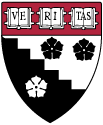Scratch PLC conversation 2: teaching programming concepts
Contributed by
Karen Randall, February 11, 2010
Second in a series of professional learning community conversations about teaching with Scratch.
The participants debated the importance of naming and directly teaching the programming concepts involved in Scratch as students work on projects. On the one hand, a strength of Scratch is that you can do interesting things without a programming background or worrying about the official terms or how scripts work together. On the other hand, knowing the terms and identifying the processes encourages students to think more deeply about their learning.
Other Files:


Dimitris,
Thanks for highlighting that quotation from the document. I think it gets at the heart of good inquiry teaching. I think I first heard that sentiment from one of the pioneers of inquiry - Hubert Dyasi. Anyway I can't really answer your question but I have used the variable function without talking about it with children directly. For me it links to another aspect of good inquiry. It is one thing to be able to do something and something very different to be able to explain it. So kids can come across and use parts of the scratch programming language without being able to articulate what they are doing. Same goes for working with physical materials such as batteries and bulbs.
Good to know that these conversations are useful for others.
To be more accurate about the conversation over variables and score-keeping, it would be pretty impossible to do this without using the term variable since that's what the block category is called! It was more that the kids made the connection to what a variable was in a Scratch project--something they found easy to figure out, that number that changed as the score changed because you had a block that said to add one to it--and variables in math equations, which were more abstract even when discussed through word problems.
Hi,
The posted conversations are very useful. I really liked the learning music / learning programming analogy. I think it illustrates some of the concepts involved in teaching with Scratch in an easy to understand way.
Sure both explicit and intuitive learning have their pros and cons.
It is mentioned in the document that
"waiting until students have practice using a concept,
then giving it a name works well. On one occasion,
after the children had done a Scratch game project
which involved keeping score, she told them that
they had actually used variables. The light bulb
lighted up - they were able to understand the idea ..."
I am interested in the way the students managed to program the score-keeping code without knowing they were using variables. And mostly what was the activity that introduced them in score-keeping, so that they would be able to discover the variable mechanism by themselves.
Thank you very much for the useful resource,
Dimitris